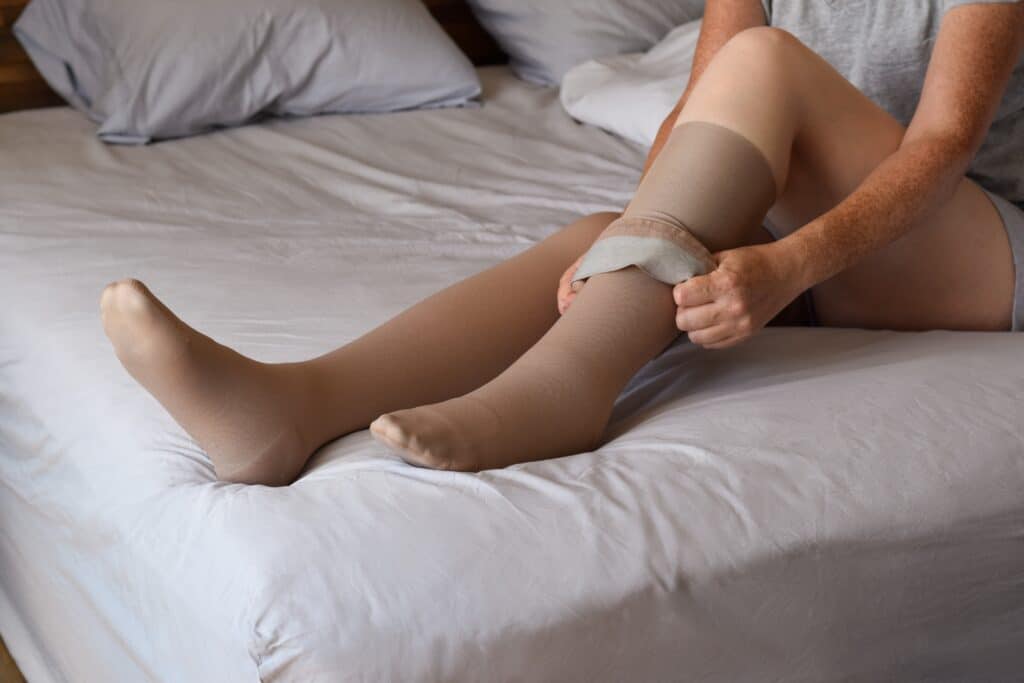It starts as swelling and skin discoloration. Before you know it, you’re dealing with a leg wound that won’t heal, aka a venous ulcer.
At McWilliams Vein Center, we offer advanced, compassion-centered care for venous ulcers. Dr. Sean McWilliams and our skilled team have extensive experience and education in managing all aspects of venous disease. We emphasize comfortable wound-healing procedures and take the time to educate our patients about how to avoid recurrent venous ulcers.
In recognition of Wound Healing Awareness Month, our blog in June discusses why venous ulcers happen and what you can do to prevent recurrence after treatment.
What Causes Venous Ulcers?
Venous ulcers frequently develop on the lower legs, usually around the ankles. These painful wounds can happen when your veins don’t circulate blood properly.
Instead of flowing back to your heart, blood pools in the legs, increasing pressure and swelling the veins (varicose veins.)
Over time, the veins may leak blood, causing rusty-looking discoloration under the skin. Eventually, the skin can break down, causing slow-healing wounds.
If you’ve had a venous ulcer before, your chances of recurrence are higher. That’s why treatment and prevention go hand in hand.
Signs You Shouldn’t Ignore
Early detection of venous disease can make a big difference. Keep an eye out for signs of venous insufficiency, such as:
- Persistent leg swelling
- Heavy legs
- Tired legs
- Frequent leg aching
- New varicose veins
The sooner we treat the cause, the better we can protect your skin and circulation. That reduces your risk of venous ulcers and helps you avoid serious complications later.
How to Prevent Venous Ulcers from Coming Back
Long-term relief requires a proactive approach. Dr. McWilliams and our team target the underlying vein disease with specialized treatments that close the unhealthy vein and improve circulation. We also use advanced healing strategies to promote wound closure. We may recommend that you:
- Wear compression stockings
- Keep your legs elevated
- Maintain a healthy weight
- Stay active
- Avoid standing or sitting too long
Our specialized vein care targets the underlying issue, not just the wound. That’s the key to lasting results.
Venous Ulcer Treatment in Wheaton, IL
This Wound Healing Awareness Month, don’t let your venous ulcer worsen. Call McWilliams Vein Center at 630-474-2600 to schedule your visit with our experts.


